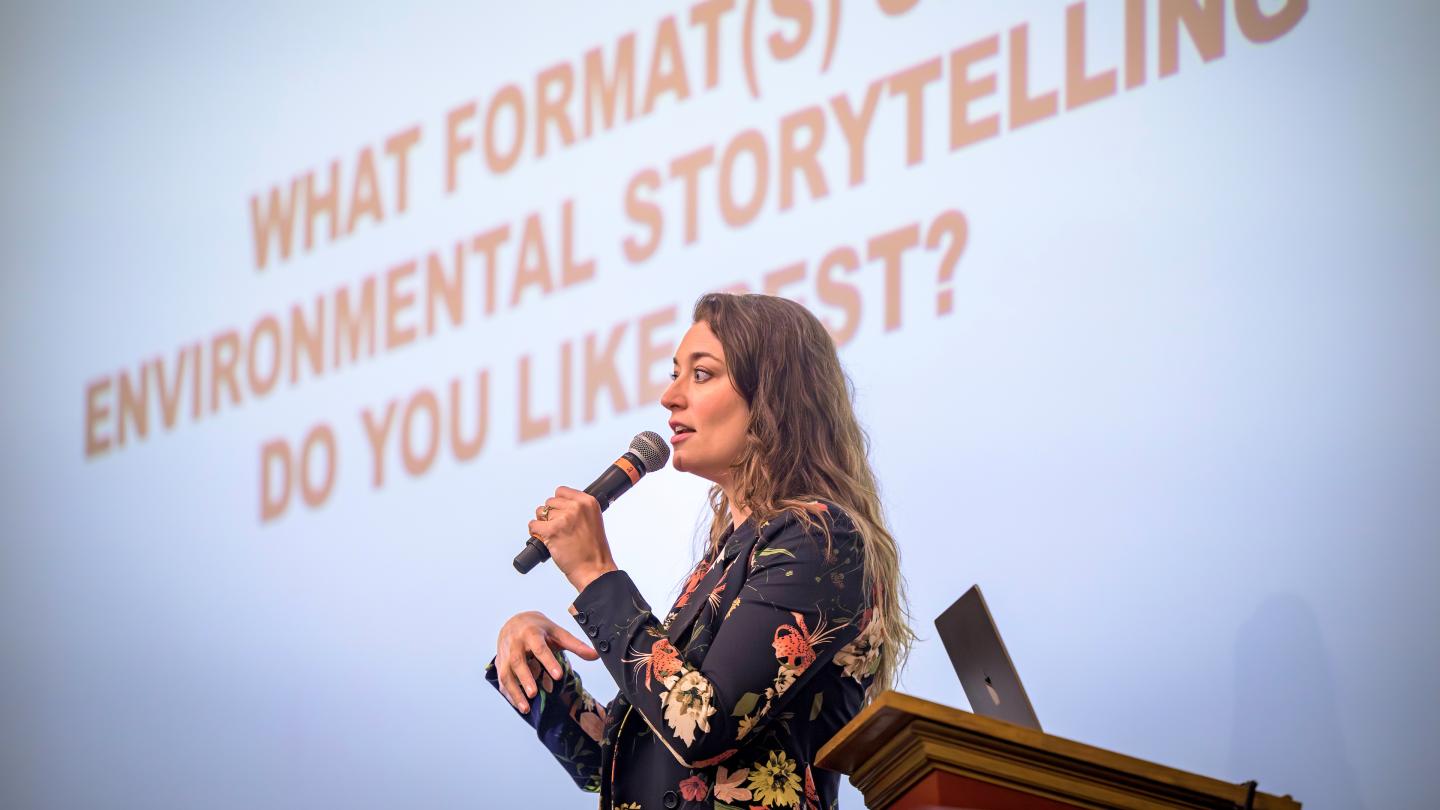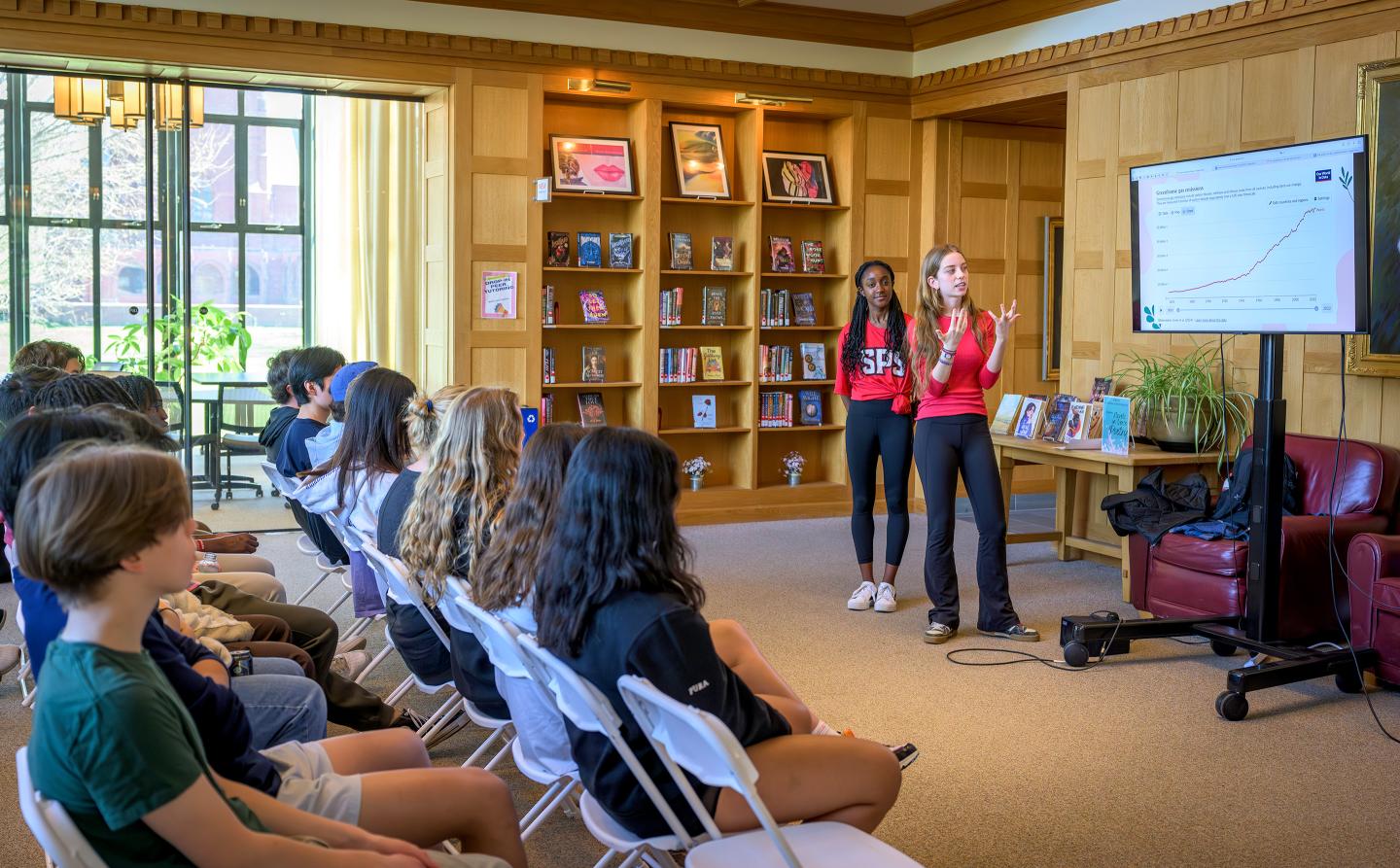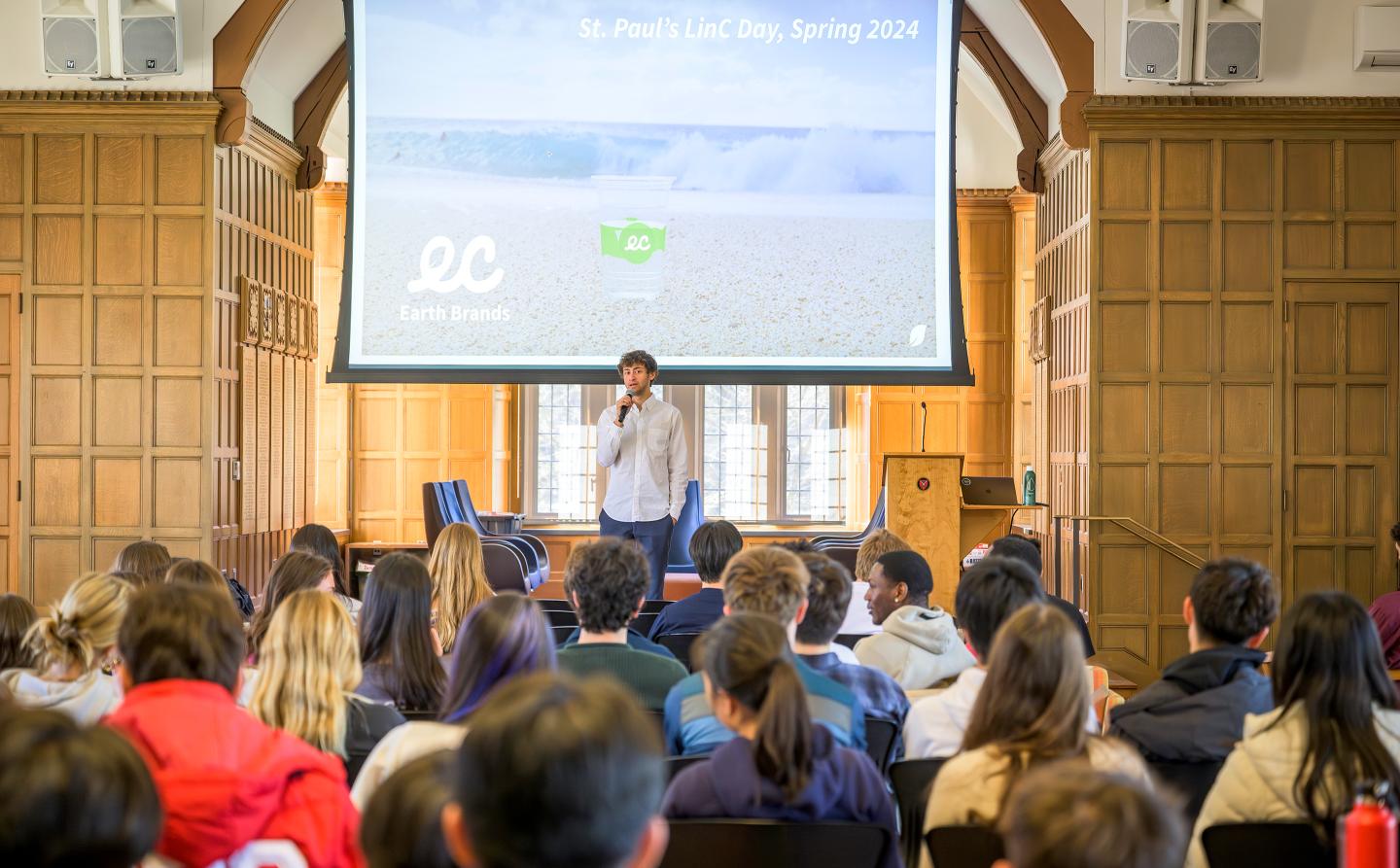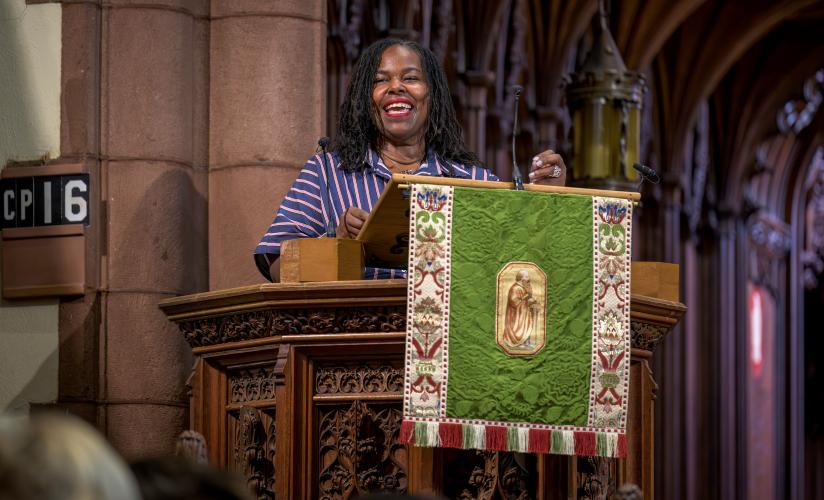

SPS Spring Term LinC Day focuses on environment and sustainability.
BY JACQUELINE PRIMO LEMMON
“Climate change is global, but adaptation is often local.”
It’s a simple phrase, but these words from National Geographic Explorer, filmmaker and PhD candidate Alizé Carrère, spoken in an episode of her PBS documentary series “Adaptation,” encapsulate a major takeaway from St. Paul’s School Spring Term LinC Day on April 17. Sunny weather served as the backdrop for the student-designed program about the environment and sustainability, which began with the screening and was followed by a series of workshops. The topic was particularly pertinent in the lead-up to Earth Day on April 22.
“Our ability to adapt is part of why we’re still here today,” Carrère says in “Floating Gardens of Bangladesh,” the “Adaptation” episode she aired at SPS. Reflecting her doctoral research on human adaptation to environmental changes, Carrère’s series documents how communities either change their ways of life to fit a changing landscape or become “climate refugees,” forced to relocate; “Floating Gardens of Bangladesh” highlights innovative structures that serve as gardens, schools and more in the face of rising sea levels and shifting lands in the South Asian country, some parts of which are under 10 feet of water during monsoon season. Constructed out of crushed water hyacinth and bamboo rods, the floating school shown in the episode also doubles as a bus to pick up children in the community each morning, is solar-powered … and has internet. Other floating gardens support crops, fish farms or ducks that provide eggs as well.
After the screening, students broke into working groups led by student LinC leaders, special guests and SPS faculty. Topics included environmental entrepreneurship with Earth Brands founders Peter Frelinguysen and Misha Medvedev; the impact of nature on the brain with Colorado State University professor Sara LoTemplio; creating sustainable ceramics with Fine Arts Teacher Lindsay Duncan; and the impact of climate change on oceans with Associate Dean of Students KC Hambleton. Carrère led a workshop on short-form environmental storytelling and gave firsthand accounts from her travels to Madagascar, Fiji and more. Additionally, four LinC leader-run workshops highlighted food waste, recycling at SPS, water conservation and the current political climate regarding climate change.
“The LinC leaders chose to discuss the environment, specifically climate change, for the spring LinC Day because we believe that the environment and climate change directly impact our day-to-day lives,” says LinC leader Lauren Edouard ’25. “With climate change becoming more and more of an issue around the world, we believe that the topic is very relevant for the community.” Edouard helped create the “Current Climate on Climate” workshop, which discussed climate change events, legislature and progress on a global, national and New Hampshire level, while fellow LinC leader JB Estes ’25 led the recycling workshop, “Talking Trash: Recycling at SPS,” which offered a surprising takeaway: when it comes to recycling, sometimes less is actually more.

“Current Climate on Climate” workshop led by student LinC leaders

Environmental entrepreneurship workshop led by Earth Brands founders Peter Frelinguysen and Misha Medvedev
“When in doubt, throw it out,” Estes explains. “This saying is very important,” he adds, because putting non-recyclables in the wrong bin “can contaminate an entire batch of recycling.” To emphasize the point, the workshop began with an activity in which students picked through fake trash bags to see which items they thought were recyclable — many of which should actually be thrown away. Attendees also learned where SPS recycling goes and how it’s processed locally in Concord then distributed globally, and left with a message to stick to recycling four things: empty cans, empty bottles, paper you can write on and cardboard.
Associate Dean of Students and LinC adviser Robb Arndt says he hopes community members took away from the day some individual action steps — such as recycling correctly, limiting food waste and turning off the tap when brushing teeth — that they can use to contribute to a more sustainable SPS and broader community, as well as an increased awareness about some of the current eco-challenges we all face. Adds LinC leader Anna Asano ’25, “No matter how small, every effort counts, and that is what we hope people can take away from this day.”



